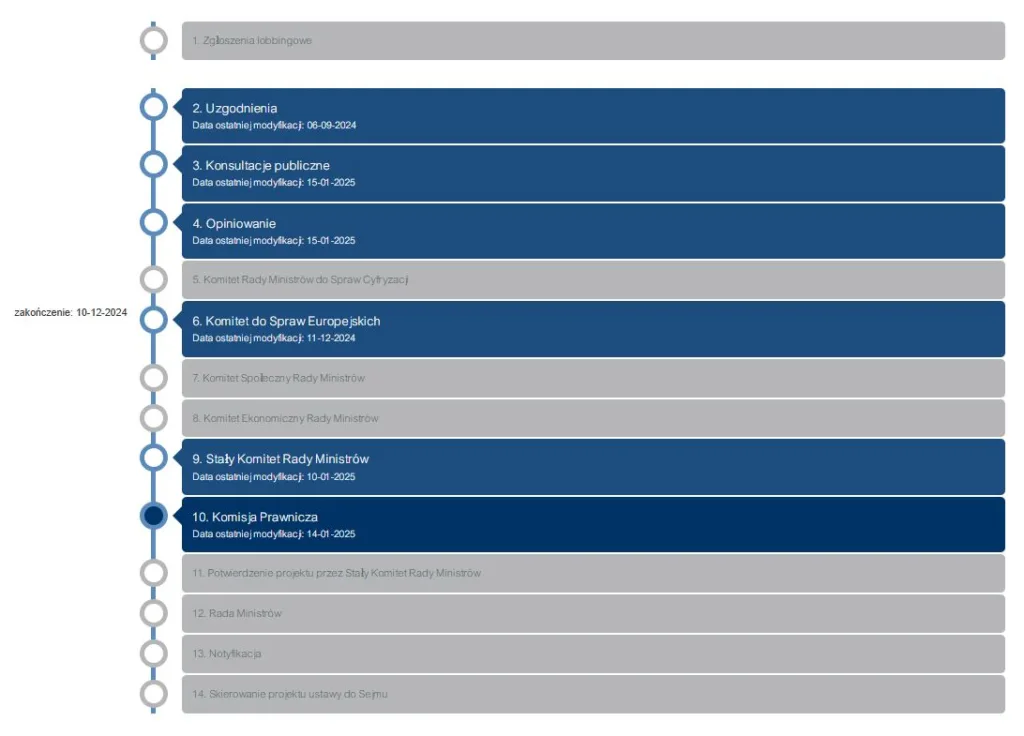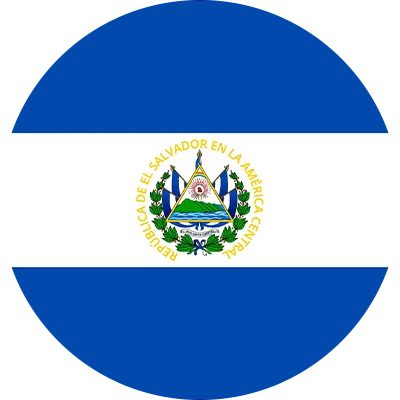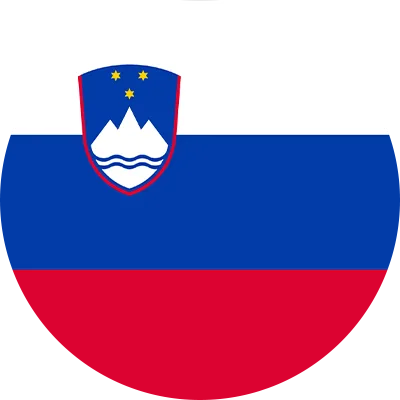
NOTICE
Due to the ongoing regulatory uncertainty within the EU resulting from the MiCA implementation, we are no longer providing EU licensing services until further notice. If you require licensing solutions, we recommend considering alternative jurisdictions such as Switzerland SRO, Dubai VARA, or the El Salvador Crypto License.
This notice, dated 7 March 2025, is provided solely for general guidance and does not constitute legal, financial, or regulatory advice.
Poland CASP Update




Table of Contents

Poland MiCA Latest News: Extended Transition Period
With the arrival of 2025, cryptocurrency asset service providers (VASPs) in Poland and Europe face a brand-new legal environment. Starting from December 30, 2024, the EU MiCA regulation officially comes into effect, but Poland has not yet fully incorporated this set of regulations into its national law. This situation has left many Polish crypto industry professionals confused about how MiCA applies to them, how the transition period is arranged, and how their legal status will change.
Progress on New Crypto Market Law in Poland
Poland is brewing a new Crypto Asset Market Act but progress has been relatively slow. As early as February 2024, the first draft was released and underwent several rounds of public discussion. Although MiCA has already come into effect across the EU, Poland still needs local legislation to implement it specifically, such as determining which government department will manage and regulate crypto enterprises. Without such local legislation, even with MiCA in place, the government cannot handle applications and supervision of crypto service providers.

Currently, the specifics of the new bill are still evolving. Since it has not yet been submitted to the Polish Parliament (Figure 1), there may be changes in the future.
Impact of Legal Delays: Is It Good News for Polish VASPs?
According to Article 152m, Paragraph 1 of the Polish Crypto Asset Market Act:
“From the effective date of this Act until the date of granting or refusing the license as described in Article 59, Paragraph 1(a) of Regulation (EU) 2023/1114, but no later than June 30, 2025, any entity registered in the virtual currency activities register on the effective date of this Act shall conduct its virtual currency activities in accordance with the current anti-money laundering and counter-terrorist financing regulations.”
Based on the above, the Polish legal draft once proposed shortening the transition period to six months (until June 30, 2025). This means that companies that became Polish VASPs before December 30, 2024, could only carry out virtual currency-related businesses until June 30, 2025. After this date, Polish VASPs would need to obtain a CASP license to continue operating.
Because Poland failed to pass its domestic crypto legislation before December 30, 2024 (see Figure 1), MiCA cannot be fully implemented here. During this period, according to MiCA provisions, Polish crypto enterprises can enjoy an 18-month transition period — that is, from December 30, 2024, they do not need to immediately apply for a new CASP license and can operate until July 2026 (although the draft is still changing and may be altered in the future).
Key Information Points:
- Grandfathering Clause: MiCA stipulates that crypto enterprises legally operating before December 30, 2024, can continue to provide services without license restrictions until July 1, 2026.
- Transition Period Regulations Cannot Be Shortened: As an EU regulation, MiCA’s provisions are the same in all member states. Unless a country acts early to shorten the transition period, but since Poland has not implemented domestic crypto legislation, Polish enterprises should enjoy the full 18 months.
- Benefits for Enterprises: This 18-month transition period provides Polish crypto companies ample time to adjust their businesses to comply with the new regulations, develop long-term compliance plans, and seek new development opportunities in a relatively stable environment.

Different Opinions from the Financial Supervision Authority
On 2 January 2025, the Polish Financial Supervision Authority (KNF) issued a statement offering a different view on the application of MiCA during the transition period. The KNF believes that even if the new bill passes after the end of the year, it is still possible to shorten the transition period. This means that if the law indeed shortens the transition period, previous enterprises may face disputes, especially if they are forced to exit the business registry as a result.
Industry insiders, however, believe that as long as enterprises are registered before 30 December 2024, they should enjoy the full 18 months. If the government improperly removes these companies, they could even claim compensation from the state.
Negative Impacts of the Legal VacuumSteps
The lack of sound Polish legislation has also brought some issues. Currently, due to the lack of specific legal support, crypto enterprises cannot apply for a new CASP license, and submitted applications will temporarily not be processed. However, this situation is temporary, and it is expected that applications can begin to be accepted by February 2025.
In addition, from December 30, 2024, Poland will no longer accept new crypto enterprise registrations. In other words, new companies cannot enter the market in the short term, but existing enterprises can seize this opportunity to consolidate themselves and prepare for a more defined regulatory and supervisory environment in the future.
Steps to Obtain a CASP License in Poland
Below is a detailed step-by-step guide for applying for a CASP license, along with our services:
1.Establish a Company in Poland:
If your enterprise is not yet registered in Poland, this is the first step. Setting up a local entity in Poland is a necessary condition to proceed with the license application process.
2.Business Assessment:
This phase includes in-depth consultation aimed at understanding your business model, scope of activities, and compliance needs. The main tasks include:
- Determining the range of services offered, such as custody, exchange, asset conversion, order execution, portfolio management, or advisory services.
- Assessing the minimum capital requirements based on the scope of services.
- Defining specific regulatory obligations related to your business model.
- Evaluating potential compliance risks and operational adjustment needs.
3.Document Preparation:
The next phase focuses on preparing and submitting a full set of documents to demonstrate compliance with MiCA requirements. This requires your internal team to work with us to prepare the following:
- Detailed description of operational processes.
- Anti-Money Laundering (AML) and risk management framework.
- Corporate governance policies, including the appointment of a compliance officer and key personnel.
- Financial documents meeting capital requirements.
4.Application Submission and Regulatory Communication:
This phase includes submitting the CASP license application to the Polish Financial Supervision Authority (KNF), maintaining communication with the regulatory body, and handling any follow-up issues. The main steps include:
- Final review and submission of application materials.
- We maintain continuous communication with KNF to address feedback and additional requirements.
- We will provide subsequent support to ensure a smooth review process.


Why Choose Us?
At Crypto License, we focus on helping enterprises navigate the complexities of MiCA and the Polish regulatory environment. With years of experience in crypto compliance and license applications, our team ensures that your application is completed efficiently and professionally. From initial consultation to post-approval support, we will accompany you throughout the process.
Follow us for the latest updates on MiCA and its implementation in Poland. Contact us now to start your journey to obtaining a Polish CASP license.
Other Recommended Licences


Switzerland
Renowned for its strong reputation and offering the most comprehensive functionality for crypto services.


Canada
A cost-effective license to conduct both payment and crypto activities, making it attractive for new market entrants.


El Salvador
A pioneering country in the adoption of Bitcoin as legal tender, fostering crypto-friendly opportunities.


Slovenia
A stable jurisdiction with a longer transitional regulatory period (from VASP to CASP) until July 2026.
What Clients Say About Our Services





